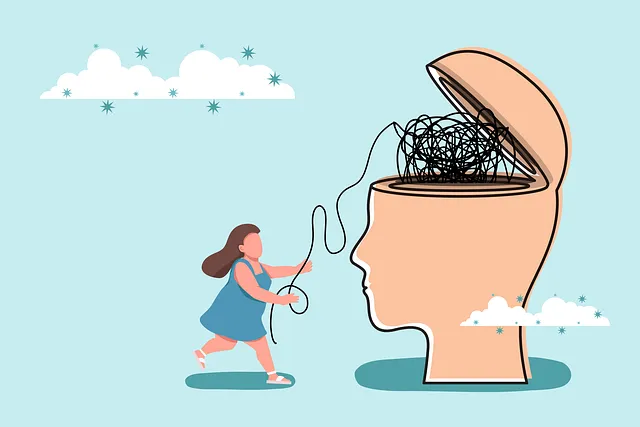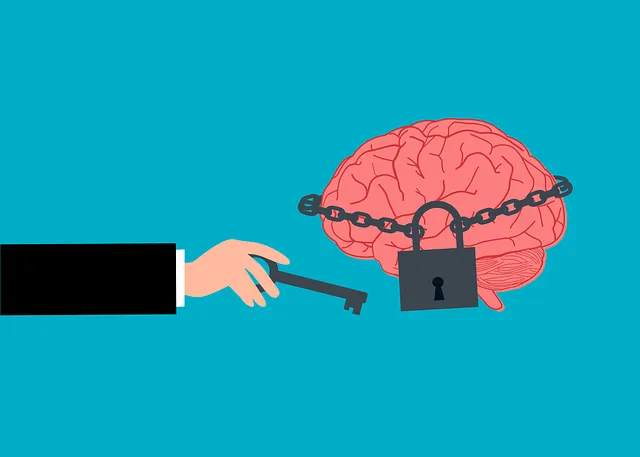The Boulder Kaiser Permanente mental health appointment center leverages group facilitation as a key strategy for improved patient care and outcomes. Through collaborative sessions, individuals with shared experiences build resilience, learn coping strategies, and foster a sense of belonging under skilled facilitators. The Mental Wellness Podcast Series addresses various topics, enhancing individual mental wellness and destigmatizing mental health issues within the community. Effective group facilitation techniques include establishing clear boundaries, active participation encouragement, and empathy-fostering dialogue. Regular risk assessments for both professionals and participants ensure a safe space for navigating sensitive topics and trauma support services. The center prioritizes evaluating facilitation techniques through qualitative and quantitative data collection, incorporating EI exercises, and ensuring facilitator safety for optimal healing and growth.
Mental wellness group facilitation plays a pivotal role in enhancing care at the Boulder Kaiser Permanente Appointment Center. This article delves into the art and science of leading supportive group sessions, exploring techniques that create safe spaces for vulnerable individuals. We examine strategies to engage participants actively, fostering meaningful interactions. Additionally, we highlight methods for evaluating success, ensuring the impact of these facilitative approaches on mental health outcomes at the Boulder Kaiser Permanente Appointment Center.
- Understanding the Role of Group Facilitation in Mental Health Care at Boulder Kaiser Permanente Appointment Center
- Creating a Safe and Supportive Environment: Key Techniques for Group Sessions
- Engaging Participants: Strategies to Foster Active Engagement and Participation
- Measuring Success: Evaluating the Impact of Group Facilitation Techniques at the Mental Health Appointment Center
Understanding the Role of Group Facilitation in Mental Health Care at Boulder Kaiser Permanente Appointment Center

At Boulder Kaiser Permanente mental health appointment center, group facilitation plays a pivotal role in enhancing patient care and outcomes. This collaborative approach brings together individuals with shared experiences or challenges, fostering a supportive environment where members can learn from one another, build resilience, and develop coping strategies. Through skilled facilitation, these groups become dynamic spaces that promote active participation, encourage open dialogue, and foster a sense of belonging.
The Mental Wellness Podcast Series Production at Boulder Kaiser Permanente has recognized the power of group facilitation in addressing various mental health concerns. From stress management workshops to risk assessment sessions for mental health professionals, these group-based initiatives cater to diverse needs. By facilitating such gatherings, healthcare professionals not only improve individuals’ mental wellness but also contribute to a broader understanding and destigmatization of mental health issues within the community.
Creating a Safe and Supportive Environment: Key Techniques for Group Sessions

Creating a safe and supportive environment is paramount for effective group facilitation, especially at centers like Boulder Kaiser Permanente mental health appointment centers where diverse individuals seek support for their mental illness. Techniques such as establishing clear boundaries, fostering active participation, and encouraging empathy among members can significantly reduce stigma associated with mental health issues. By creating an atmosphere of acceptance, facilitators enable participants to share their experiences openly, enhancing the therapeutic benefits of group sessions.
For instance, incorporating icebreakers and ground rules at the beginning of each session helps set a positive tone. Trained professionals should guide these activities, focusing on building trust while ensuring every member feels heard and respected. This approach, coupled with regular risk assessments for mental health professionals, facilitates a supportive environment where individuals can navigate sensitive topics related to trauma support services. Such efforts contribute to successful Mental Illness Stigma Reduction Efforts within group settings.
Engaging Participants: Strategies to Foster Active Engagement and Participation

Engaging participants actively is key to successful group facilitation, especially at a mental health appointment center like Boulder Kaiser Permanente. To foster participation, facilitators should employ varied engagement strategies that cater to different learning styles and preferences. This might involve interactive exercises, open-ended discussions, small group breakouts, and using visual aids or technology to enhance understanding and encourage contribution.
Cultural competency training for healthcare providers plays a significant role in creating an inclusive environment where participants feel safe to share their experiences. By incorporating burnout prevention strategies and crisis intervention guidance into the facilitation process, facilitators can ensure that sessions remain productive and supportive. These approaches not only promote active engagement but also contribute to the overall well-being of the group, fostering a collaborative and healing atmosphere.
Measuring Success: Evaluating the Impact of Group Facilitation Techniques at the Mental Health Appointment Center

At the Boulder Kaiser Permanente mental health appointment center, measuring the success of group facilitation techniques is paramount to ensure effective support and positive outcomes for patients. Evaluations incorporate a multi-faceted approach, encompassing both qualitative and quantitative data collection methods. This includes post-session feedback surveys from participants, which gauge their perceptions of the group environment, the usefulness of facilitated activities, and overall improvements in their mental wellness. Furthermore, quantitative metrics such as attendance rates, patient retention over time, and changes in clinical symptoms are tracked to quantitatively assess the impact of these techniques.
The center places a strong emphasis on Emotional Intelligence (EI) and Self-Awareness Exercises as integral components of group facilitation. By incorporating EI into sessions, facilitators help members build stronger interpersonal connections, enhance communication, and improve emotional regulation skills. Regular risk assessments for mental health professionals are also conducted to mitigate potential challenges within the group setting. This proactive approach ensures that participants receive tailored support while fostering a safe, supportive environment conducive to healing and growth.
The implementation of group facilitation techniques at the Boulder Kaiser Permanente mental health appointment center has shown significant promise in enhancing patient care. By creating safe, supportive environments and employing strategies to engage participants actively, facilitators can foster a sense of community and promote positive mental wellness outcomes. Measuring success through evaluation ensures continuous improvement, allowing for tailored interventions that address unique challenges faced by patients at this renowned healthcare facility.






